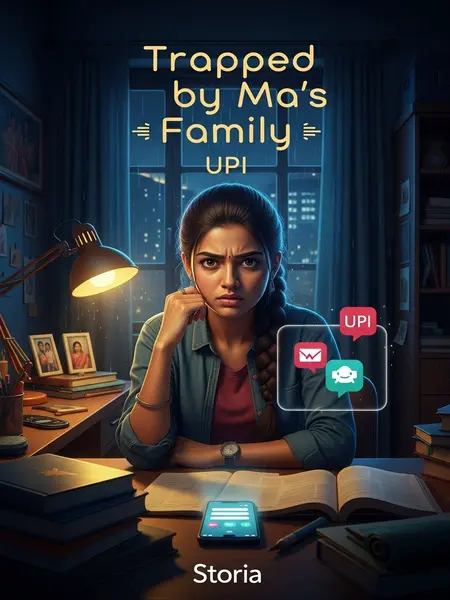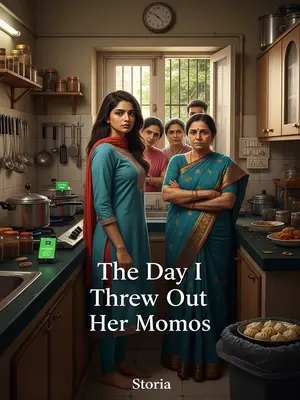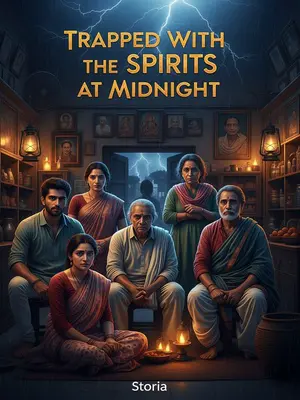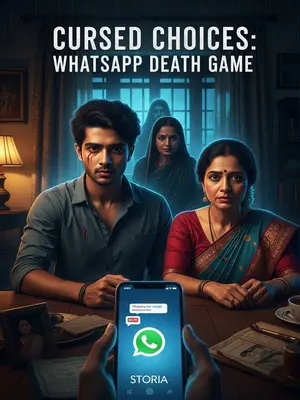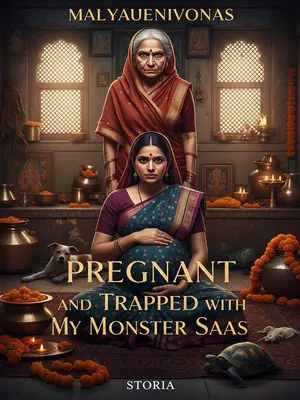Chapter 3: Samosas and Self-Reflections
A month later, after midterms, on a rare lively Friday night in the hostel, Priya suggests, “No class tomorrow—let’s order some late-night samosas and watch a horror movie. My treat.”
Her voice is full of excitement, the sort that comes when tomorrow means no lectures, no running for attendance. The smell of jasmine oil lingers in the room, mixing with the city’s midnight breeze and the spicy promise of samosas.
“No, no, let’s split the bill,” Meera says. “You paid last time.”
The friendly argument makes me smile. “How about... I order this time.” I muster up my courage.
“Just to thank you all for looking after me this past month. My mom checks on me so much, sometimes she even bothers you.” I scratch my head, feeling awkward.
It’s my first time offering to treat, and my first attempt at using Family UPI for a ‘big’ expense—four tandoori platters, totalling ₹350.
As soon as I pay, my phone vibrates violently.
The word “Ma” on the screen makes my heart leap.
The phone glows like a warning. “Hello, Ma...”
“Ananya Sharma. Where are you right now?”
Her voice is so sharp it could cut the air.
I hear the background sound of the TV—some soap opera, a woman crying. “It’s 10:30 at night. What did you spend ₹350 on? Who are you with?”
I hurry out of the room, lowering my voice. “Ma, I just ordered a late-night snack with my roommates...”
“Liar.”
Her voice spikes. “The hostel? You need ₹350 in the hostel? Are you out with boys? I knew it, the moment you left home you’d start acting out.”
My face burns. “It’s really just tandoori, Ma, I can let my roommates talk to you—”
“No need. Go back to the room. No—turn on your video right now. I want to see for myself where you are.”
I have no chance to explain, only to obey. My hands tremble as I start the video call. The camera sweeps over my three stunned roommates and the fresh takeout on the table.
My mother’s face fills the screen, lipstick perfect but twisted with anger.
“Hello, Aunty...” Priya greets her timidly.
My mother ignores her, her eyes fixed on me.
“This is your idea of a late-night snack?”
“Eating oily food at this hour?”
“Can your stomach handle that?”
“Is your living expense meant for you to waste like this?”
Her questions come one after another. My roommates’ faces shift from surprise to embarrassment to indifference.
Meera turns away, pulling her bed curtain shut.
The tension in the air is thick, heavier than the masala in the tandoori. I twist the end of my dupatta, wishing I could disappear. “Ma, please, let’s talk later...” I’m almost begging.
“Now. Return the food immediately.”
“Then write a self-reflection, explaining your actions and thoughts tonight. I want it tomorrow morning.”
After the call, the room falls silent.
I stand there, clutching the now-cold tandoori, tears silently streaming down my face.
The orange streetlight outside throws my shadow against the wall, small and trembling.
“Ananya...” Priya finally breaks the silence. “Has your mom... always been like this?”
I nod, unable to speak.
The smell of tandoori makes me nauseous—just like my mother’s all-consuming control suffocates me.
Fatima looks away, pretending to tidy her shelf. The other girls exchange glances—no one knows how to comfort me. Even the night feels heavier, pressing on my chest.
“Um... we get it.” Meera peeks out from behind her curtain. “But next time... maybe don’t treat us.”
I know, as always, I won’t make friends at this college.
That night, I curl up under my blanket, pulling my knees to my chest, listening for the distant temple bell, the way I did as a child when I was scared. I cry as I type the ‘self-reflection’ my mother demanded.
The only light comes from my phone, illuminating the cracks in the paint above me. I type out apologies I don’t believe, my fingers numb from guilt and resentment.
At 2 a.m., my phone vibrates again. A long string of WhatsApp messages from my mother:
[Did you finish the self-reflection?]
[Ma is doing this for your own good. The world outside is dangerous.]
[You don’t know how to manage money at all. Ma is teaching you.]
[Starting tomorrow, your Family UPI limit is ₹120 per day.]
[Remember this lesson. Ma loves you.]
The blue ticks glow in the darkness, like eyes watching me. Staring at these messages, I suddenly realise a terrifying truth: this isn’t love. It’s imprisonment, disguised as love.
My mother weaves an invisible net with money, trapping me so tightly that I don’t even dare to struggle.
The next morning, while my roommates are still asleep, I quietly delete the self-reflection full of lies.
The sound of a distant temple bell floats in through the window as I open my notebook. Instead, I write a line in my notebook: “How to apply for student loans and on-campus part-time jobs.”
My mother may never understand: her control won’t make me better. It will only teach me to lie, to hide, and eventually, to rebel.
That day, as I wrote that line, I knew I’d finally taken the first step to break free.
I look out the window and watch the sunlight crawl over the hostel garden, falling on the sleeping faces of my roommates. A new resolve begins to burn quietly in my chest, stronger than the old fear. For the first time, I wonder—what if I stop being afraid?
